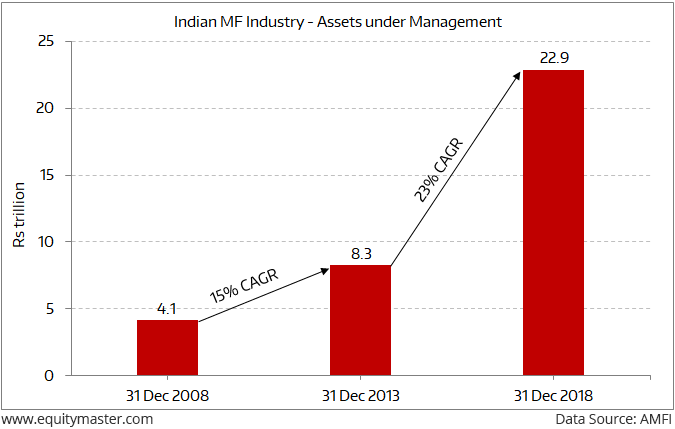Sensex Ends Marginally Higher; Auto And Consumer Durable Stocks Witness Buying
Indian share markets continued to trade near the dotted line during closing hours and ended the day marginally higher. Gains were largely seen in the auto sector and consumer durables sector, while power stocks and realty stocks witnessed selling pressure.
At the closing bell, the BSE Sensex stood higher by 34 points (up 0.1%) and the NSE Nifty closed higher by 22 points (up 0.2%). The BSE Mid Cap index closed down by 0.5%, while the BSE Small Cap index ended the day down by 0.9%.
Asian stock markets finished on a mixed note as of the most recent closing prices. The Hang Seng stood up by 0.2% and the Nikkei was trading down by 0.2%.
European markets were trading on a positive note. The FTSE 100 was up by 1.1%. The DAX was trading up by 0.9%, while the CAC 40 was up by 0.8%.
The rupee was trading at 71.74 to the US$ at the time of writing.
The rupee witnessed selling pressure today ahead of the Reserve Bank of India (RBI) policy statement that will be released later this week.
Market participants are expecting that the central bank could consider cutting rates by 25 basis points (bps). However, any change in the stance could trigger further volatility for the Indian rupee.
This will be RBI governor's first policy meeting and a dovish stance could put the currency under pressure.
In its December monetary policy review, the RBI had kept interest rates unchanged but held out a promise to cut them if the upside risks to the inflation do not materialize.
Data available with NSE showed foreign portfolio investors (FPIs) sold Rs 1.1 billion worth of domestic stocks on Monday. Domestic institutional investors (DIIs) were also net sellers and sold equities to the tune of Rs 650 million.
Note that FPIs bought Rs 13.2 billion worth of domestic stocks on Friday on the back of budget announcements made last week, data available with NSE suggested.
Speaking of FII data, 2018 was a turbulent year for the Indian stock markets. Foreign investors dumped Indian equities worth Rs 33,014 crore and debt instruments worth Rs 47,795 crore. In fact, they have continued to be net sellers in Indian stocks even in 2019. So far in January 2019, they have sold equities worth Rs 2,675 crore.
Had it not been for the solid participation from domestic investors, the Indian markets would have witnessed a much steeper fall.
The chart below puts things in perspective.
The Rapid Growth of the Indian Mutual Fund Industry

Ankit Shah shares an interesting observation in the rapid growth of MF Industry.
Here's what he wrote in one of the editions of The 5 Minute WrapUp...
- Ten years ago, the total assets under management (AUM of the Indian mutual fund industry were Rs 4.13 trillion (1 trillion equals 1 lakh crore) as on 31 December 2008.
Over the subsequent five years, the industry grew at a compound annual growth rate (CAGR) of 15% to take the total AUM to Rs 8.2 trillion as on 31 December 2013.
Thereafter, the Indian mutual fund industry took off like never before, compounding at 23% CAGR, and taking the total AUM as on 31 December 2018 to Rs 22.86 trillion.
In just 10 years, the AUM of the Indian MF Industry has multiplied 5.5 times, compounding at 19% CAGR.
The total number of mutual fund folios as on 31 December 2018 stood at 8.03 crore (80.3 million).
Also, speaking of the interim budget, to help you gain more insight into interim budget proposals, we have research analyst, Sarvajeet Bodas talk about everything you need to know about the interim budget in our latest episode of Indian Stock Market Podcast. As per him, the devil lies in the detail.
Catch him talk about all the must-knows of the budget, including which stocks and sectors could benefit post the announcement.
In the news from the energy sector, GAIL share price was in focus today as the company reported a 33.2% year-on-year (YoY) rise in profit at Rs 16.8 billion for the December quarter.
Sales during the quarter jumped 33.7% to Rs 197.8 billion, while EBITDA jumped to Rs 26.7 billion from Rs 19.7 billion in the corresponding quarter last year.
The board of directors of the company also declared an interim dividend of Rs 6.25 per equity share, amounting to Rs 14.1 billion.
Moving on to the news from the banking sector, Punjab National Bank (PNB) share price was also in focus today as the state-run lender reported a profit for quarter-ended December - its first profit in four quarters.
Net profit for the bank rose 8% YoY to Rs 2.5 billion during the quarter. Net interest income (NII)-the lender's core income rose 7% to Rs 42.9 billion.
Asset quality for the bank also improved as its gross non-performing assets (NPA) ratio contracted to 16.3% from 17.1% sequentially. Net NPA ratio also fell to 8.2% from 8.9% seen in the September-ended quarter.
Provisions fell 38.4% quarter-on-quarter (QoQ) to Rs 27.5 billion.
Of the above, Rs 20.1 billion went towards provisioning against the accounts affected by the Rs 143.6-billion Nirav Modi fraud.
The management of the company stated that there is nothing left to provide for the Nirav Modi fraud now.
The bank made recoveries worth Rs 160 billion during the first nine months of this financial year. This is thrice the amount it recovered last year.
Market participants were also tracking Tech Mahindra share price, BHEL share price, HPCL share price, and DLF share price as these companies announced their December quarter results today.
You can also read our recently released Q3FY19 results of other companies here: Reliance Industries, Federal Bank, Infosys, TCS, Trident, HDFC Bank, Maruti Suzuki, DHFL, Gruh Finance.
And to know what's moving the Indian stock markets today, check out the most recent



